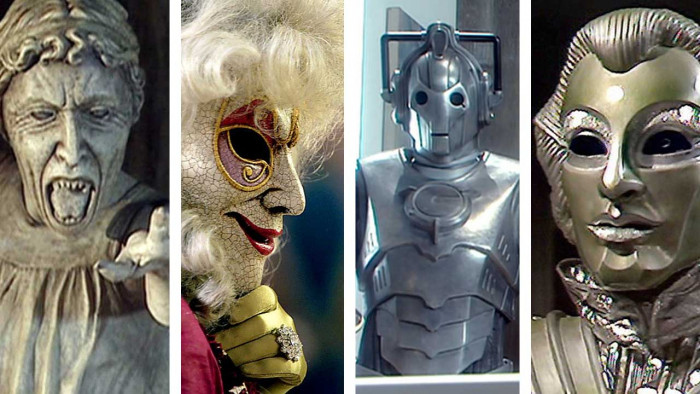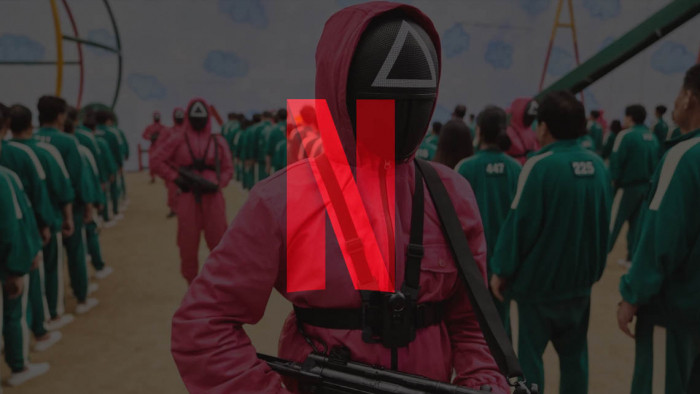ShortList explores the short- and long-term effects of finding yourself on the receiving end of a physical assault...
Have you ever noticed how when you have a black eye or a cut on your face, people look at you funny? The particular ‘funny’ I’m referring to is not sympathy or sadness, but fear. They’re hoping it’s a sports injury, but they’re keeping their options open. Being visibly hurt makes you scary.
I’m no expert, but I don’t believe that the human face is a particularly effective weapon.
I don’t imagine many muggers purposely ramming their eye sockets into their victims, or many bar brawlers pummelling an opponent with their nose, and yet seeing these areas bloodied and bruised suggests aggression. We assume that an injured man has played some active role in his altered face.
We find it hard to see men as truly passive victims of violence; we find it hard to deal with ourselves as victims of violence. But, in reality, men are three times more likely to be victims of a serious attack than women, according to a 2013 study of emergency department admissions carried out by Cardiff University.
I probably wasn’t consciously thinking of the statistics when I was on the floor being kicked, when I was beaten up as a teenager, but I wasn’t surprised.
It was an inevitability. It was the Eighties, it was east London and – like towelling socks and bland commercial dance music – being assaulted was just something that happened to young men in our area at that time.
It happened to me on a patch of grass on the A12. Although it was decades ago, that bit of dual carriageway is forever ‘special’ to me. The attack didn’t last long, probably about 30 seconds.
I didn’t throw a punch – entirely outnumbered I was quickly on the floor, with boots (probably loafers, actually – they were Eighties mods), a bottle and finally a scooter helmet hitting the bone and flesh surrounding my brain.
Close quarters
What was it like being beaten up? It didn’t hurt much; the adrenaline acted as an anaesthetic, I think. I clearly recall smelling the beer on their breath; fighting is very intimate. Oh, and I had thoughts – surprisingly coherent thoughts – in the midst of the action. The main thought being: “I wonder when they’ll stop?” Once I understood that my role was going to be something of a passive one, then came the horrifying realisation that my health, and ultimately my life, was in the hands of some drunk men with an interest in The Jam.
This wasn’t a one-off, this wasn’t an oddity. On another occasion I was knocked unconscious at my local Tube station. I didn’t even see the punch coming, my date for the evening told me about it once I’d come round.
The weird thing is, I thought little of either of these incidents.
I don’t think I was uniquely punchable, it happened to pretty much all my friends. Now, in retrospect, I feel horrified, but also suspect that little has changed in our attitude towards young men and violence. Dr Ken Harland of the University Of Ulster carried out a five-year study into the lives of adolescent boys. He found that more than 80 per cent had experienced violence but, like me, few questioned it or spoke about it.
“We found a pattern emerging from a very young age,” he says. “They saw violence as normal. They would almost expect to be a victim. There was a reluctance to seek support, connected to masculinity and what it is to be a man. We were quite startled by the fact that young men wouldn’t go to get help even when there were counsellors in the school. They’d say, ‘There’s no way I’d do that.’”
Harland says, without any help, the boys were privately trying to work out how not be beaten up. “These boys were saying they feared people they didn’t know, they feared getting on public transport. The threat of violence was an issue – the fear that it may happen. The boys went through this complex negotiation about how they might avoid conflict."
Being so ready to accept that I would be attacked, I was entirely unprepared for the long-term effects. However, the incidents completely changed my worldview.
After effects
Immediately after I was beaten up, I was full of questions, questions I shared with no one but myself. Should I have fought back? Should I have run away? Would I be beaten up again? Will I see those men again? Should I avoid that area? Will I be beaten up again... and on and on in rotation. Mingling very practical fears for my safety with a whole bunch of other stuff about who I was and the kind of man I was supposed to be.
Soon I took up martial arts, and started lifting weights at the gym – interests which have stayed with me over the years as part of my routine. I would have denied the link at the time, but now it seems obvious that these hobbies were part of an attempt to make life feel safer. To make myself stronger in a world that no longer felt secure. In a sense, I owe my gym habit to some strangers in parkas I met on the A12.
The psychological effects of being attacked were partly a surprise because I thought I knew violence. It was the staple of every film and TV show I watched. Although obviously fictitious, they did somehow, through sheer repetition, reinforce the idea that fights ended once the hitting stopped. I’d seen fights on the streets of New York, fights in dystopian space stations, fights on those empty industrial estates where all British TV criminals seemed to live. These fantasy settings reinforced my understanding that men hit each other – sometimes they won, sometimes they lost. But they did not moon around for months wondering whether they should wear that Echo And The Bunnymen coat in case it drew too much attention at the bus stop and started something terrifying.
Clearly, dwelling on 007’s long-term psychological scars would have slowed the franchise down somewhat, but nothing I’ve ever seen on a screen has in any way resembled the nightmarish and undignified reality of a street fight. (Barring possibly that strange scene in Mean Streets down in the pool hall.)
Not alone
One person who understands the reality of how men cope with violence is Bristol-based community victim-support volunteer Tim (his duties mean that he has to remain anonymous). He specialises in male victims of domestic abuse. He talks about one client who was threatened with a knife, and told that his partner’s brothers would kill him if he ever left, and was driven to depression and suicidal feelings. This man didn’t tell anyone about his experiences for a year after he escaped the relationship. “There is a feeling of shame for male victims, a feeling that people won’t believe that a bloke can be a victim,” says Tim. “I reassure them that they’re not alone. They think, ‘I’ve allowed this to happen. I’m a man.’”
Tim says that everyone reacts differently when they’re involved in a violent attack, but all counsellors are taught that a typical pattern can involve a week of shock, a week of realisation, nine months to reach acceptance and a final stage of mental adaptation – which can mean it takes a year to recover.
He has seen entirely different patterns and timescales between clients, but is certain that being a man doesn’t mean that you are any less prone to long-term trauma than a woman. “Men aren’t expecting to react the way they do; for recovery to take that long. Men feel that because they are a man, they should be reacting in a certain way to certain situations.“
The aftermath and sense of shame hit one young man hard, after an attack in Manchester. Joe was at university when he was beaten up after a night out. He’d intervened to help someone else in trouble and the two men turned their attention from their original target to Joe himself. He was punched to the floor and left covered in blood in a crowded clubbing area of town. Eight years later, he remembers every detail.
“I felt so helpless, prone in the street. No one called an ambulance. My jumper was soaked in blood. No one interjected. I felt like an outcast. I think most people wanted to see a fight.“ It was only much later that night, having made his way home to wait for an ambulance, that Joe fully absorbed what had happened. “The guys who attacked me had something in their eyes that said, ‘We want to kill you.’ I lay there in the dark, on the sofa waiting for the ambulance and I cried. I hadn’t cried for ages.”
Along with the broken nose were the less obvious symptoms of trauma. Joe was offered counselling, but felt he didn’t need it and still doesn’t regret that decision, however his sense of the risk built into any night out was altered forever. “I never feel quite at home in nightclubs. I remember being out after the attack and feeling very anxious. Just occasionally seizing up. “
Although he’s now finally at peace with the incident, Joe admits to altering the story on the rare occasions that he’s talked about it. “I didn’t throw a punch, but I’ve lied at times and told people I swung. You add bits to the tale. You do feel emasculated lying there, everyone watching, no one helping.”
The stereotypes still exert their pull on us, even after the reality of physical assault has been experienced. It’s partly for this reason that a charity has been visiting schools in Somerset to make schoolchildren more aware of the disastrous aftermath fighting can create.
Taking a stand
Adam Fouracre started Stand Against Violence after his brother was beaten to death on the day before his 18th birthday in a random incident. His attackers, three men also in their teens, had been drinking all day, and the resulting horrific injuries ended Lloyd Fouracre’s life.
Adam’s programme aims to reduce violence and the naivety surrounding the possible consequences of violence. He hopes to see more done. “I would like to see what we do taken into every school across the UK,” says Adam. “There is a much better chance of changing people’s mind-set when they are young, before attitudes are ingrained in their late teens.”
We live in less fighty times than those I experienced growing up, and fortunately violent crime is falling sharply. But still young men are most at risk of violence, and still we lack a way of talking to male victims that makes us feel less weird, and partially to blame and like we’ve betrayed some ancient set of macho values by having our heads kicked in. It would be useful for us to talk about real male violence without the weight of thousands of years of misinformation and hardman mythology. I like to think that if someone had told my attackers that I’d still be brooding about that incident more than three decades later, they’d not have bothered.
With profuse apologies to Rupert Brooke, the weird truth is there’s some corner of a patch of grass next to the A12 that is forever a gang of mods giving me concussion.
Latest
Related Reviews and Shortlists


The best Doctor Who episodes, ranked









